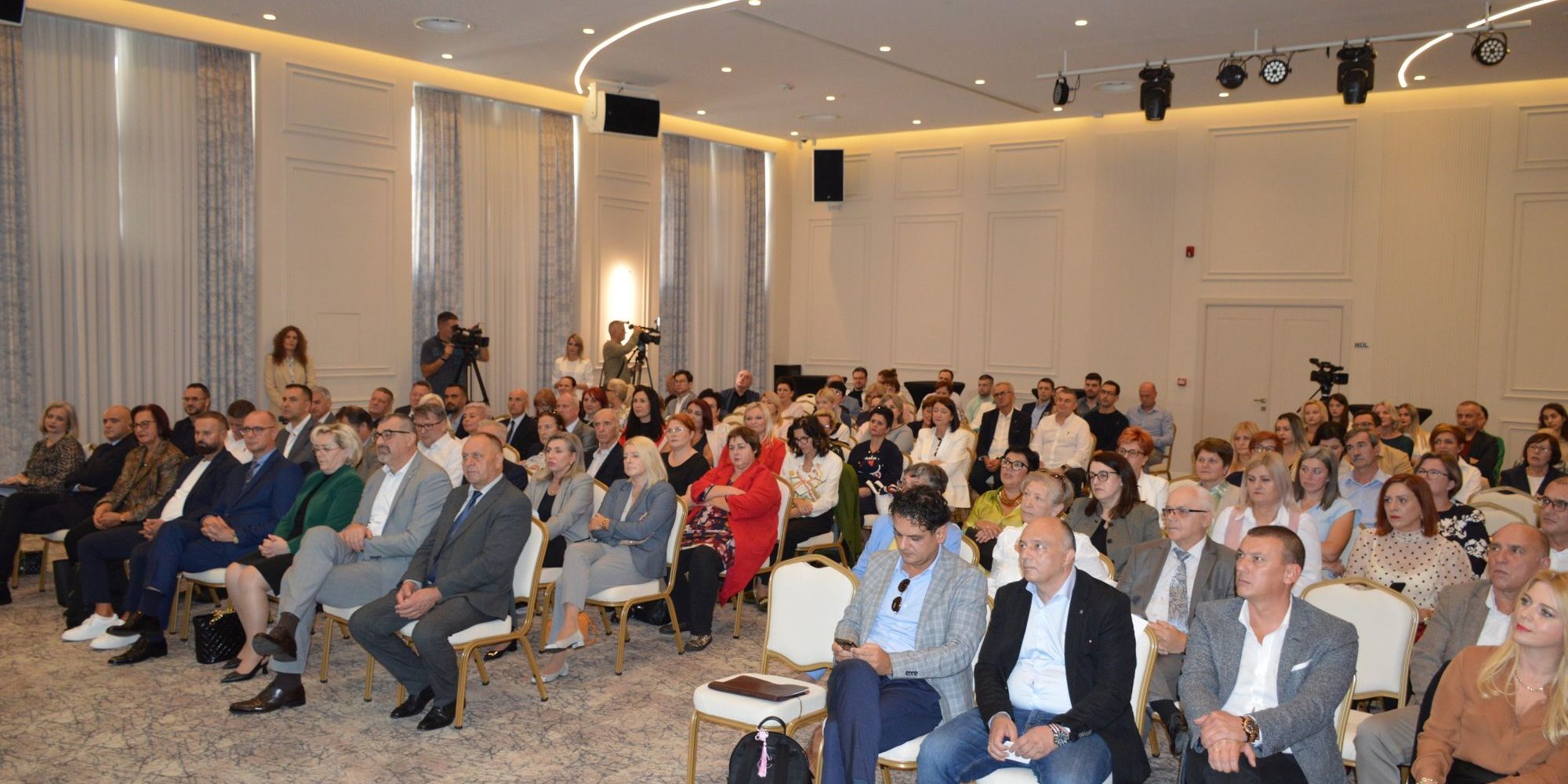At the formal ceremony marking the 25th anniversary of kidney transplantation at the University Clinical Center Tuzla, a comprehensive review was presented, highlighting the early milestones in establishing the transplant program. The event also showcased the center’s achievements, future plans for expanding capacities, staff education, and efforts to raise public awareness about the importance of organ donation.
In her address, the president of the organizing committee, Prof. Dr. Mirna Alečković- Halilović, head of the Department of Nephrology, Dialysis, and Transplantation, and leader of the Kidney Transplantation Program at the University Hospital Tuzla, emphasized that out of 350 kidney transplants performed in the Federation of Bosnia and Herzegovina, 253 were conducted in Tuzla.
“This year, we performed more transplants from deceased donors than from living ones, reflecting the advancement of transplantation in a well-developed healthcare system. With the rise of non-communicable diseases in the 21st century, the likelihood of needing an organ transplant now exceeds that of becoming a donor. It is crucial to invest in institutions and experts to ensure that patients across Bosnia and Herzegovina have equal access to care. Public involvement is also essential. Today, I urge everyone to sign the donor card with the Donor Network of Bosnia and Herzegovina and have conversations with your family about your wishes to donate organs in the event of brain death,” said Prof. Dr. Alečković- Halilović.
The first kidney transplant at the University Clinical Center Tuzla was performed in 1999 in cooperation with doctors from the University Clinic AKH from Vienna, headed by Prof. Dr. Ferdinand Müllbacher.
Prof. Dr. Senaid Trnačević, a pioneer of transplant medicine in Tuzla and a specialist in internal medicine and nephrology, was part of the team that performed the first kidney transplant in Bosnia and Herzegovina. Reflecting on that milestone, he shared that the operation was the culmination of extensive preparation and a long-held dream of the medical team. “We succeeded thanks to our motivation, solid organization, and strong international collaboration. Transplantation is a complex process involving 12 different medical disciplines. Before our first transplant, we underwent 30 training sessions, and when Prof. Müllbacher joined us, we didn’t just perform one transplant, but four within two days,” said Prof. Dr. Trnačević.
Prof. Dr. Ervin Alibegović, Assistant Director for Teaching and Scientific Research, delivered an address to the audience.
“Transplant medicine is one of the strategic priorities of the University Clinical Center Tuzla. To date, approximately 90 percent of all transplants in Bosnia and Herzegovina have been performed at our institution, primarily using domestic resources. This success is the result of well-trained teams, strong organization, and advanced technical capabilities. We have achieved notable outcomes in cadaveric kidney, liver, and cornea transplants, as well as in allogeneic and autologous hematopoietic stem cell transplants, and transplants from living kidney and liver donors. However, we have set even more ambitious goals for the future. Achieving these objectives within the healthcare system requires not only the full commitment and motivation of our doctors and medical staff, but also flawless organization and the continuous promotion of organ donation and transplant care,” said Prof. Alibegović during his address.
During ceremony, a short documentary by Dr. Mirza Atić was presented, telling the story of a young man who received a life-saving transplant and has since thrived both professionally and socially.







